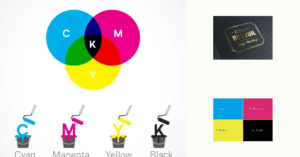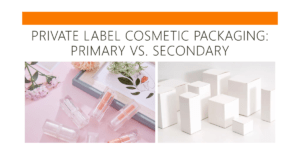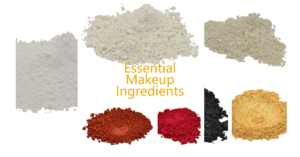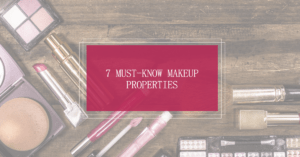Private Label vs White Label Cosmetics: Which One is Right for Your Business?,
When starting a beauty business venture, one of the key decisions you’ll need to make is whether to opt for private label or white label cosmetics. Understanding the differences between these two labeling options is crucial in choosing the right strategy for your brand. Private label cosmetics involve customization, formula ownership, and collaboration with manufacturers, while white label cosmetics provide quick market entry, low minimum order requirements, and ready-made solutions.
By comparing the advantages and disadvantages of each option, you can make an informed decision on which labeling approach best aligns with your business goals and target market.
Table of Contents
Key Takeaways:
- Private label cosmetics offer customization, formula ownership, and collaboration with manufacturers.
- White label cosmetics provide quick market entry, low minimum order requirements, and ready-made solutions.
- Consider the advantages and disadvantages of each labeling option to make an informed decision for your beauty brand.
Understanding Private Label Cosmetics
Private label cosmetics offer a unique opportunity for beauty brands to create and customize skincare products that align with their brand identity. By collaborating with a private label cosmetics manufacturer, you can formulate high-quality products, choose custom packaging, and establish a unique brand presence in the market.
The Basics of Private Label Cosmetics Manufacturing
Private label cosmetics manufacturing involves a comprehensive process of turning your vision into reality. It begins with formulating products tailored to your brand’s requirements, taking into consideration the desired ingredients, textures, and performance. Once the formulation is finalized, you can select packaging options that reflect your brand’s aesthetic and create a cohesive product line.
Next, your private label manufacturer will produce, fill, and assemble your products, ensuring consistency and adherence to strict quality standards. This comprehensive manufacturing process allows you to maintain complete control over the creation and production of your cosmetics.
Advantages of Private Label Cosmetics
- Customization Options: Private label cosmetics provide extensive customization options, allowing you to tailor each product to your brand’s unique identity, target market, and specific customer needs.
- Brand Control: With private label cosmetics, you have full control over your brand’s image, including packaging design, branding, and overall product presentation.
- Quick Time-to-Market: Private label cosmetics manufacturers have streamlined production processes, enabling faster turnaround times for product development and market entry.
- Industry Expertise: Working with experienced private label manufacturers gives you access to their expertise and knowledge in product formulation, packaging, and beauty industry trends.
Customization Options for Your Beauty Brand
One of the most significant advantages of private label cosmetics is the extensive customization options available. You can choose from a wide range of formulations, including skincare products such as moisturizers, serums, and cleansers, as well as makeup products like foundations, lipsticks, and eyeshadows. Additionally, you can tailor the fragrance, texture, packaging, and even the product’s performance to meet your brand’s unique specifications and customer preferences.
The Advantages of Owning Your Formula
Another key benefit of private label cosmetics is the ownership of your formula. By developing your unique formula, you have control over the quality, ingredients, and efficacy of your products. It also allows for exclusivity and differentiation in the market, ensuring that your brand offers something truly unique to consumers.
Disadvantages of Private Label Cosmetics
While private label cosmetics offer numerous advantages, it’s essential to consider the potential disadvantages as well. Here are a few factors to be mindful of:
- Competitive Market: The private label cosmetics market is highly competitive, so differentiation and effective branding strategies are crucial for success.
- Higher Minimum Order Quantities: Private label manufacturing often requires higher minimum order quantities compared to other labeling options, which may impact your initial investment and storage space.
- Limited Formula Control: While you have ownership of your formula, it may be challenging to make minor adjustments or modifications once the manufacturing process has begun.
Despite these considerations, private label cosmetics offer significant potential for beauty brands looking to create a unique product line tailored to their target market. With customization options, formula ownership, and collaboration with experienced manufacturers, private label cosmetics provide a pathway to establishing a distinctive brand image and gaining a competitive edge in the beauty industry.
Exploring White Label Cosmetics
White label cosmetics offer a convenient solution for beauty brands looking to quickly enter the market with their own product line. In this section, we will delve into what white label cosmetics are, the advantages they provide, and the potential disadvantages to consider.
What Are White Label Cosmetics?
White label cosmetics involve sourcing pre-formulated products from a third-party manufacturer and labeling them with your brand. These products are already developed and typically come in a range of options, such as skincare, makeup, and haircare. By opting for white label cosmetics, you can save time and effort in formulating your own products from scratch.
Advantages of White Label Cosmetics
White label cosmetics offer several advantages that make them an attractive option for beauty brands:
- Quick Market Entry: With pre-formulated products readily available, white label cosmetics provide a faster route to bringing your products to market. This can be particularly beneficial for brands looking to capitalize on current trends or seasonal demands.
- Low Minimum Order Requirements: White label manufacturers often have low minimum order requirements, allowing you to start with smaller quantities and minimize upfront costs. This flexibility is especially advantageous for new and emerging brands.
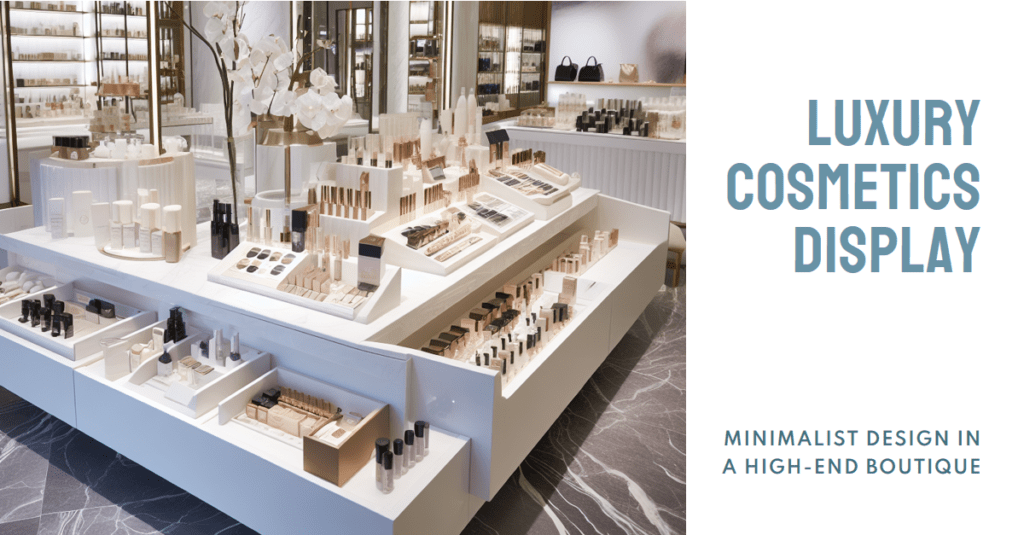
Sourcing Pre-Formulated Products for Your Brand
When sourcing white label cosmetics, you can choose from a range of pre-formulated products offered by the manufacturer. This includes selecting products that align with your brand’s target market, quality standards, and desired formulations. You can leverage the expertise of the manufacturer to ensure that the products meet the necessary safety and regulatory requirements.
How White Label Provides a Quick Market Entry
White label cosmetics enable you to enter the market quickly by eliminating the need for extensive product development and manufacturing processes. With pre-formulated products readily available, you can focus on building your brand, marketing strategies, and establishing your customer base.
Disadvantages of White Label Cosmetics
While white label cosmetics offer numerous benefits, it is important to consider the potential disadvantages:
- Limited Customization: Since the products are pre-formulated, you may have limited control over the ingredients and formulation. This can restrict your ability to create unique and highly customized products.
- Brand Differentiation: With white label cosmetics, there is a possibility that other brands may also offer similar products from the same manufacturer. This can make it challenging to differentiate your brand and stand out in the market.
It is important to carefully evaluate these disadvantages and assess whether they align with your brand’s goals and target market.
| Advantages | Disadvantages | |
|---|---|---|
| Quick Market Entry | Low minimum order requirements | Limited customization |
| Brand differentiation |
What Is The Difference Private Label vs White Label Cosmetics
Understanding the differences between private label and white label cosmetics is essential in making an informed decision for your beauty brand. Let’s compare these two labeling approaches:
1. Formulation Control: With private label cosmetics, you have the opportunity to customize and formulate products according to your brand’s specifications. You have control over the ingredients used, allowing you to create unique products tailored to your target market. On the other hand, white label cosmetics already have pre-formulated products ready for branding, limiting your control over the formulation process.
2. Customization Options: Private label cosmetics offer a wide range of customization options, including choosing packaging, colors, scents, and textures that align with your brand identity. This allows you to create a distinct product line that stands out in the market. However, white label cosmetics may have limited customization options as they are already pre-formulated and packaged.
3. Branding: Private label cosmetics provide the opportunity to build a unique brand identity. You can design your own packaging, labels, and marketing materials to create a cohesive brand image. With white label cosmetics, you have the benefit of a ready-made product but may have limited options for branding customization.
4. Ownership: When you choose private label cosmetics, you have the advantage of owning the formula. This means that your products are exclusive to your brand, and you have the freedom to protect and trademark your formulations. White label cosmetics, however, may be available to other brands as well, limiting your exclusivity and ownership.
To summarize, private label cosmetics offer more control over formulation, customization options, branding, and ownership. On the other hand, white label cosmetics provide ready-made solutions with less control and customization. Consider your business goals and target market when deciding which labeling approach aligns best with your brand.
| Comparison | Private Label Cosmetics | White Label Cosmetics |
|---|---|---|
| Formulation Control | Customize and formulate products | Pre-formulated products |
| Customization Options | Wide range of customization options | Limited customization options |
| Branding | Build a unique brand identity | Limited options for branding customization |
| Ownership | Own the formula and protect formulations | Less exclusivity and ownership |
Assessing Quality in Private Label vs White Label Products
When choosing between private label and white label products, it’s crucial to assess the quality of the formulations. Evaluating the product formulation and ingredients plays a significant role in determining the overall safety, effectiveness, and appeal of your cosmetics.
Evaluating Product Formulation and Ingredients
When assessing the quality of private label and white label products, closely examine the product formulations and their ingredients. Consider the following factors:
- The sourcing of ingredients: Ensure that the ingredients used meet your standards of quality and ethics. Look for natural, organic, or scientifically backed ingredients that align with your brand values.
- The formulation technique: Evaluate the formulation technique employed by manufacturers. Does it incorporate innovative techniques and technologies that enhance the effectiveness and stability of the products?
- The product consistency and texture: Consider the texture and consistency of the products. Are they luxurious, lightweight, or easily absorbed by the skin? Pay attention to consumer preferences and market trends when evaluating the texture and consistency of your cosmetics.
- The absence of harmful substances: Test the products for the absence of harmful substances such as parabens, sulfates, phthalates, and artificial fragrances. Consumers today are increasingly conscious of the products they use and their potential health risks.
By thoroughly assessing the product formulation and ingredients, you can ensure that your private label or white label cosmetics meet the standards of quality and performance that you and your customers expect.
The Importance of Product Testing and Compliance
Product testing and compliance are essential steps in maintaining the quality and safety of your cosmetics. Testing ensures that your products meet the regulatory requirements and are safe for consumer use. Compliance with regulations helps establish trust with customers and protects your brand reputation.
Some key aspects to consider regarding product testing and compliance include:
- Safety assessments: Conduct comprehensive safety assessments to verify that your cosmetics do not pose any health risks. This includes testing for skin irritation, allergic reactions, and stability.
- Regulatory compliance: Adhere to the regulatory guidelines set by relevant authorities, such as the FDA in the United States. This includes compliance with labeling requirements, ingredient restrictions, and any specific regulations for your target market.
- Third-party testing: Consider engaging third-party testing laboratories to validate the safety, efficacy, and quality of your cosmetics. This provides an unbiased assessment and adds credibility to your products.
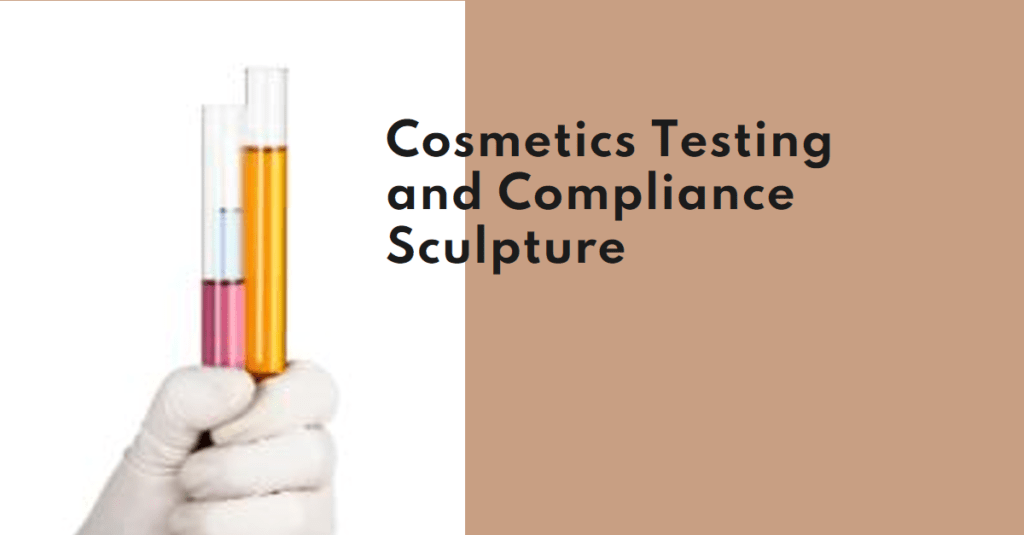
By prioritizing product testing and compliance, you guarantee that your private label or white label cosmetics comply with industry standards, meet consumer expectations, and ensure their safety and satisfaction.
Cost Comparison: Private Label and White Label Solutions
When it comes to deciding between private label and white label solutions for your cosmetics business, cost is a significant factor to consider. Understanding the start-up costs and investment required for each labeling option, as well as the concept of economies of scale, can help you make an informed decision that aligns with your financial goals and business strategy.
Start-up Costs and Investment
Private label and white label solutions differ in terms of the initial financial outlay required. Private label cosmetics often involve higher start-up costs due to the customization options and formula ownership. These costs can include product development, packaging design, and branding expenses. On the other hand, white label cosmetics generally have lower start-up costs as they involve sourcing pre-formulated products from suppliers.
It’s important to carefully assess your budget and business objectives when considering the start-up costs and investment for each labeling option. Private label may require a higher upfront investment, but it offers the opportunity for greater control over your products and brand identity. White label, on the other hand, provides a more affordable way to enter the market with ready-made products.
Understanding the Economies of Scale
Another aspect to consider when comparing the cost of private label and white label solutions is the concept of economies of scale. Economies of scale refer to cost advantages that result from increased production and sales volume.
With private label cosmetics, as your business grows and you place larger orders with manufacturers, you may be able to negotiate better pricing and discounts due to the economies of scale. This can help reduce the cost per unit and increase your profit margins over time.
On the other hand, white label cosmetics already benefit from economies of scale as they are often produced in large quantities by suppliers. This allows them to offer lower minimum order requirements and competitive pricing to their clients.
Cost Comparison: Private Label vs. White Label
| Cost Considerations | Private Label | White Label |
|---|---|---|
| Start-up Costs | Higher due to customization and formula ownership expenses. | Limited start-up costs as products are pre-formulated. |
| Economies of Scale | Potential for cost reduction as sales volume increases. | Already benefit from economies of scale. |
| Profit Margins | Potential for higher profit margins with larger sales volumes. | Slimmer profit margins due to competitive pricing. |
Overall, the cost comparison between private label and white label solutions depends on your specific business needs, budget constraints, and long-term growth plans. Private label may require a higher upfront investment but offers greater control and potential for higher profit margins. On the other hand, white label provides a more affordable way to start your beauty brand but may have lower profit margins due to increased competition.
By carefully analyzing the start-up costs, investment requirements, and potential economies of scale associated with each option, you can make an informed decision that aligns with your financial goals and business strategy.
Private Label Cosmetics: Uniqueness and Brand Identity
Private label cosmetics offer the perfect opportunity for you to create a unique and distinct brand identity. With private label cosmetics, you have the ability to customize and brand your beauty products in a way that helps your brand stand out in the market.
By collaborating with a private label cosmetics manufacturer, you can tailor your products to meet the specific needs and preferences of your target audience. You have the freedom to choose the formulation, packaging, and design elements that reflect your brand’s personality and values.

Creating a strong brand identity is crucial for establishing a loyal customer base and standing out in a competitive industry. With private label cosmetics, you have the opportunity to create a unique brand story and image that resonates with your target market.
By customizing your packaging, labeling, and marketing materials, you can craft a cohesive and visually appealing brand aesthetic that showcases your brand’s values and captures the attention of consumers. This level of brand customization sets you apart from competitors who may offer generic, mass-produced products.
Additionally, private label cosmetics allow you to develop a sense of exclusivity and uniqueness. By offering products that are not readily available from other brands, you can attract customers who are seeking something different and special.
Uniqueness and brand identity are essential in building a strong presence in the beauty industry. With private label cosmetics, you have the power to create a one-of-a-kind brand that connects with your target audience and sets you apart from the competition.
White Label Cosmetics: Speed to Market and Accessibility
White label cosmetics offer beauty brands the advantage of a swift market entry and easy accessibility. With ready-made solutions, low minimum order requirements, and flexibility in product selection and branding, white label cosmetics provide a convenient and efficient option for launching your beauty brand.
Ready-Made Solutions for a Quick Launch
When you choose white label cosmetics, you gain access to a range of ready-made products that are already formulated, tested, and packaged. These products are designed to meet industry standards and regulations, allowing you to efficiently launch your brand without investing extensive time and resources in product development. By leveraging white label solutions, you can swiftly introduce your cosmetics line to the market and start generating sales.
Low Minimum Order Requirements and Flexibility
White label cosmetics typically have low minimum order requirements, making them a cost-effective option for small and emerging beauty brands. Whether you’re just starting out or looking to expand your product offerings, the ability to order smaller quantities allows you to manage inventory more efficiently and minimize financial risks.
Furthermore, white label cosmetics offer flexibility in product selection and branding. With a range of pre-formulated options available, you can choose the products that best align with your brand’s vision and target audience. Additionally, white label solutions often allow for customization in packaging and branding, enabling you to create a unique and compelling brand identity.
Navigating the Private Label Cosmetics Industry Partnerships
Choosing the Right Private Label Manufacturer
When it comes to private label cosmetics, choosing the right manufacturer is crucial for the success of your beauty brand. The private label manufacturer you partner with will play a significant role in the quality, formulation, and overall reputation of your products. It’s essential to conduct thorough research and consider several factors when selecting a private label manufacturer.
Look for a manufacturer that aligns with your brand values, has a solid track record, and can deliver the quality and customization options your business requires. Consider their expertise in manufacturing beauty products, their capacity to scale production, and their ability to meet your specific formulation and packaging needs. By carefully evaluating and selecting a reputable private label manufacturer, you can ensure that your products meet the highest standards and resonate with your target customers.
Learn more about How to Choosing a Private Label Cosmetics Partner Manufacturer
Collaborating with Dermatologists and Cosmetics Chemists
One way to bring unique and effective formulations to your private label cosmetics is by collaborating with dermatologists and cosmetics chemists. These experts can provide valuable insights, knowledge, and expertise in formulating skincare and beauty products. By collaborating with dermatologists, you can leverage their understanding of skin health and specific ingredients that address various skin concerns. Their recommendations and expertise can help you develop products that are safe, effective, and tailored to meet the needs of your target market.
Additionally, partnering with cosmetics chemists can bring innovative formulations and cutting-edge technologies to your product line. They can assist in creating products with scientifically-backed ingredients and formulations that align with current beauty trends. Collaborating with these industry professionals can give your private label cosmetics a competitive edge and enhance their credibility.
White Label Cosmetic Companies and Your Business Strategy
Selecting the right white label cosmetic company is an important aspect of your business strategy. When choosing a white label supplier, there are several factors to consider to ensure a successful partnership that aligns with your brand’s strategy and target market.
- Product Quality: Look for white label cosmetic companies that prioritize high-quality formulations and ingredients. Conduct thorough research, read customer reviews, and request samples to assess the quality of their products.
- Product Range: Consider the variety of products offered by the white label supplier. Ensure that their product range aligns with your brand’s vision and target market. A diverse product catalog can provide more opportunities for your business to expand and cater to different customer preferences.
- Customization Options: Evaluate the customization options provided by the white label company. Determine if they allow you to add your own branding elements, create personalized packaging, or modify the product formulation to meet your specific requirements. Customization is crucial for establishing a unique brand identity.
- Reliability and Reputation: Research the reputation and reliability of the white label supplier. Look for companies with a proven track record of delivering products on time and providing excellent customer service. You can check for certifications, industry affiliations, and testimonials to gauge their credibility.
- Price and Minimum Order Requirements: Compare the pricing structure and minimum order requirements of different white label cosmetic companies. Consider your budget and projected sales volume when making a decision. Look for companies that offer competitive prices without compromising on product quality.
By carefully considering these factors, you can select a white label cosmetic company that complements your business strategy and helps you deliver high-quality products to your target market.
Legal and Brand Considerations in Cosmetics Labeling
In the cosmetics industry, it is essential to understand and comply with labeling regulations to ensure legal compliance and protect your brand. Proper labeling of your cosmetic products not only helps you meet regulatory requirements but also establishes trust with your customers. This section will explore the legal and brand considerations you need to keep in mind when labeling your cosmetics.
Understanding Labeling Regulations in the Cosmetics Industry
Labeling regulations govern the information that must be included on cosmetic product labels. These regulations vary by country and region, and it is crucial to familiarize yourself with the specific requirements in your target market. Failure to comply with these regulations can result in legal consequences and damage your brand’s reputation.
Labeling regulations typically require the following information to be included on cosmetic product labels:
- The product’s identity
- Ingredients list
- Net weight or volume
- Directions for use
- Warnings and precautions
- Manufacturer or distributor information
- Country of origin
- Batch or lot number
- Expiration date
Additionally, certain claims, such as organic or cruelty-free, may require substantiation and compliance with specific guidelines. It is essential to ensure that any claims made on your product labels are truthful, accurate, and supported by scientific evidence.
Protecting Your Brand with Proper Cosmetic Labels
Proper cosmetic labels not only assist with legal compliance but also play a vital role in protecting your brand’s identity and reputation. The label is often the first point of contact between a consumer and your product, making it an excellent opportunity to convey your brand’s values and create a memorable impression.
Some key considerations when designing cosmetic labels to protect your brand include:
- Consistent brand identity: Ensure that your labels align with your overall brand image, including fonts, colors, and logos.
- Clear and informative: Clearly communicate the product’s key features, benefits, and uses to help customers make informed purchasing decisions.
- High-quality materials: Use durable materials that withstand handling and potential exposure to water or other substances. This preserves the integrity of your labels and prevents them from peeling or fading.
- Correct and accurate information: Double-check all text, ingredients, and claims on your labels to avoid errors or misleading information.
By investing in proper labeling and adhering to legal requirements, you can build trust with your customers, establish your brand as a reputable player in the cosmetics industry, and protect your products from potential legal challenges.
Conclusion
When it comes to choosing between private label and white label cosmetics, there are several factors to consider in order to make the right decision for your beauty brand. By evaluating the advantages and disadvantages of each option, you can align your choice with your business goals and target market.
Private label cosmetics provide the opportunity for customization, formula ownership, and collaboration with manufacturers. This labeling option allows you to create a unique brand identity and stand out in the market. However, it requires a higher investment and more involvement in the manufacturing process.
On the other hand, white label cosmetics offer a quick market entry, low minimum order requirements, and ready-made solutions. This option is cost-effective and provides accessibility for beauty brands. However, it may limit your customization options and brand uniqueness.
To make an informed decision, carefully evaluate the quality of both labeling options, considering factors such as product formulation, ingredient quality, product testing, and compliance with regulations. Additionally, factor in the cost considerations, start-up costs, and economies of scale.
In conclusion, the choice between private label and white label cosmetics depends on your customization needs, product uniqueness, cost considerations, and branding strategies. Take the time to assess these factors and make a decision that aligns with your business goals and target market. By choosing the right labeling approach, you can set your beauty brand on the path to success.
FAQ
What is the difference between private label and white label cosmetics?
Private label cosmetics involve customization and collaboration with manufacturers, while white label cosmetics are pre-formulated products sourced from a third-party manufacturer.
What are the advantages of private label cosmetics?
Private label cosmetics offer customization options, formula ownership, and the ability to create a unique brand identity.
What are the advantages of white label cosmetics?
White label cosmetics provide quick market entry, low minimum order requirements, and ready-made solutions for your beauty brand.
What are the disadvantages of private label cosmetics?
Private label cosmetics require more investment and involvement in the manufacturing process.
What are the disadvantages of white label cosmetics?
White label cosmetics have limited customization options and lack ownership of the formula.
How do I assess the quality of private label and white label cosmetics?
It is important to evaluate the product formulation, ingredients, and ensure compliance with safety and regulatory standards.
What are the cost considerations for private label and white label solutions?
Private label cosmetics may require higher start-up costs, while white label cosmetics offer cost-effectiveness due to economies of scale.
How can private label cosmetics help with brand identity?
Private label cosmetics allow for customization and branding options to help your beauty brand stand out in the market.
How does white label cosmetics provide a quick market entry?
White label cosmetics offer ready-made solutions for a quick product launch, low minimum order requirements, and flexibility in branding.
How do I choose the right private label cosmetics manufacturer?
It’s important to consider the manufacturer’s expertise, reputation, and ability to meet your customization needs. Learn more choosing-a-private-label-cosmetics-partner.
What factors should I consider when choosing a white label cosmetics supplier?
You should consider the supplier’s product range, quality, reliability, and their alignment with your brand’s strategy and target market.
What are the legal considerations in cosmetics labeling?
Understanding labeling regulations and properly labeling your cosmetic products is crucial to protect your brand and comply with industry standards. Check here cosmetics-labeling-guide

